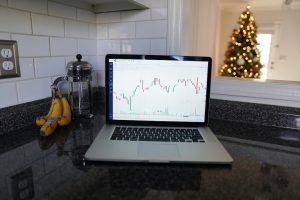Forex and stock trading are two popular investment options that are often compared to determine which is better. While both have their unique advantages and disadvantages, it is crucial to understand the differences between the two before deciding which is better.
Forex trading is the buying and selling of currencies on the global foreign exchange market. It is the largest and most liquid financial market in the world with an average daily trading volume of over $5 trillion. Forex trading involves the exchange of one currency for another with the aim of making a profit from the difference in exchange rates.
On the other hand, stock trading involves the buying and selling of shares of publicly traded companies on stock exchanges. The goal of stock trading is to make a profit by buying low and selling high.
One of the primary differences between forex and stock trading is the level of liquidity. Forex trading is more liquid than stock trading because of the high trading volume and the 24-hour nature of the forex market. This means that traders can enter and exit trades quickly without worrying about liquidity issues.
Stock trading, on the other hand, can be less liquid, especially for smaller companies that are not heavily traded. This can make it difficult to find buyers and sellers at the right price, leading to longer holding periods and potentially reducing profits.
Another difference between forex and stock trading is the level of volatility. Forex trading is generally more volatile than stock trading because of the high leverage used in forex trading. Leverage allows traders to control larger positions with smaller amounts of capital, but it also increases the risk of losses.
Stock trading, on the other hand, is generally less volatile because it is based on the performance of individual companies. While there may be some volatility based on market conditions or news events, it is generally less volatile than forex trading.
When it comes to trading costs, forex trading is generally less expensive than stock trading. Forex brokers typically charge lower commissions and spreads than stock brokers, making it easier for traders to make a profit.
However, forex trading also involves currency conversion fees, which can add up over time. Stock trading does not have these fees, but it may have higher commissions and spreads.
One advantage of stock trading is the potential for long-term growth. Investing in stocks can provide a steady stream of income through dividends and capital appreciation over time. Forex trading, on the other hand, is more focused on short-term gains and is not necessarily suited for long-term investing.
Ultimately, the choice between forex and stock trading comes down to personal preference and investment goals. Forex trading may be better for those who prefer short-term trading and high liquidity, while stock trading may be better for those who prefer long-term growth and stability.
In conclusion, both forex and stock trading have their unique advantages and disadvantages, and the choice between the two depends on one’s investment goals and risk tolerance. It is important for traders to do their research and understand the differences between the two before making any investment decisions.






